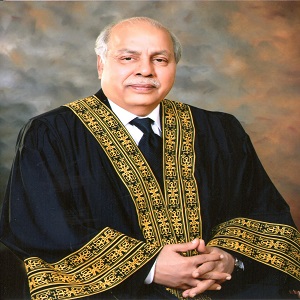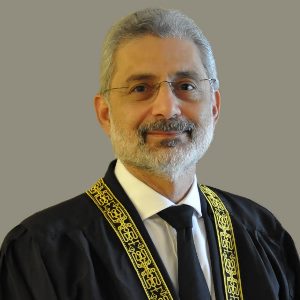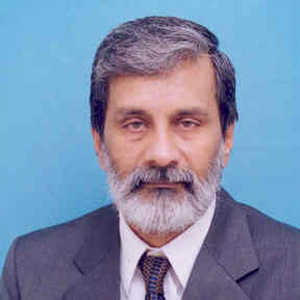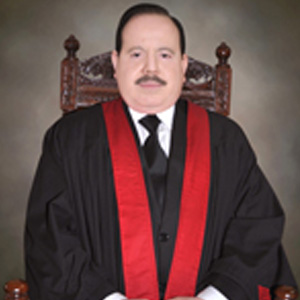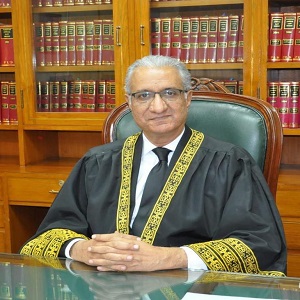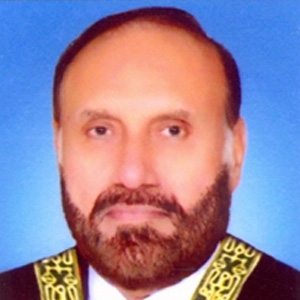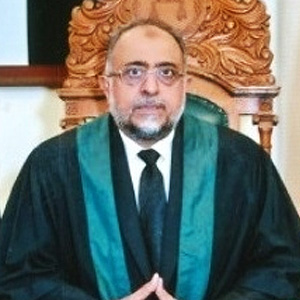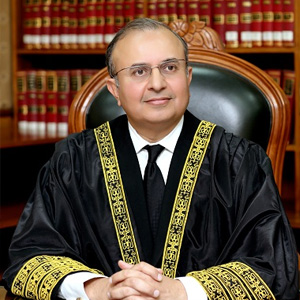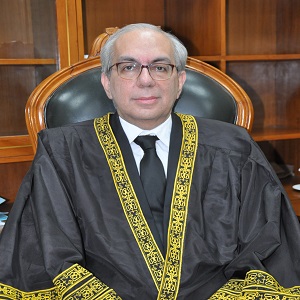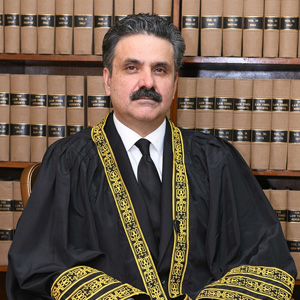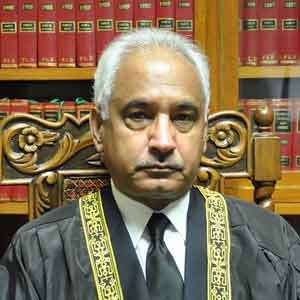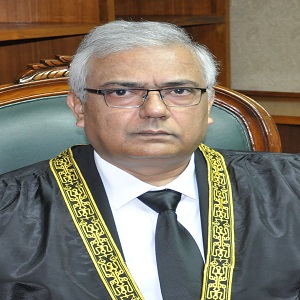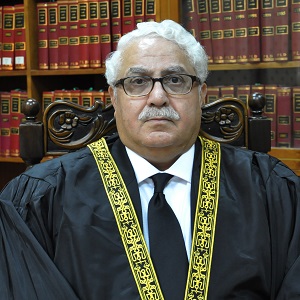
The Supreme Court of Pakistan is the apex court in the judicial hierarchy of Pakistan.
Established in accordance to the Part VII of the Constitution of Pakistan, it has ultimate and extensive appellate, original, and advisory jurisdictions on all courts (including the high courts, district, special and Shariat court), involving issues of laws and may act on the verdicts rendered on the cases in context in which it enjoys jurisdiction. In the court system of Pakistan, the Supreme Court is the final arbiter of legal and constitutional disputes as well as final interpreter of constitutional law, and the highest court of appeal in Pakistan.
In its modern composition, the Supreme Court is incorporated of Chief Justice of Pakistan, sixteen justices and two ad hoc who are confirmed to their appointment by the President upon their nominations from the Prime Minister’s selection based on their merited qualifications. Once appointed, justices are expected to completed a designated term and then retire at 65 years old, unless their term is terminated through resignation or impeachment by the Supreme Judicial Council resulted in a presidential reference in regards to the misconduct of judge(s). In their discourse judgement, the justices are often categorized as having the conservative, textual, moderate, and liberal philosophies of law in their judicial interpretation of law and judgements.
The Supreme Court has a permanent seat in Islamabad and meets at the Supreme Court Building at the Red Zone.
Although the Supreme Court was established pursuant to the Government of India Act 1935, the modern structure of the court was reestablished by the second set in 1956, and restructured by the Constitution of Pakistan in 1973 where a significant part of the Constitution is dedicated towards the restructuring of the Supreme Court.
The Part VII of the Constitution, ranges from articles 176 through 191, deals with the powers, composition, rules, and responsibilities of the Supreme Court.
These articles concern:
The Supreme Court has all the original, appellate, and advisory jurisdiction on all of the country’s courts – hence, the Supreme Court is the final arbitrator of all cases where the decision has been reached. In 1976, the jurisdiction of the Supreme Court was constrained and limited by the passing of the Fifth Amendment to the Constitution but its powers were originally restored in 1985 through the Eighth Amendment, which further expanded the jurisdiction of the Supreme Court.
The Supreme Court enjoys a powerful jurisdiction in the country including on the federal government, provincial governments, governmental agencies, NGOs, and where the government and governmental agencies fails to perform its mandated duty to protect the basic human rights or deviating from the law in light of taking the Suo motu notice.
From 2008 to 2013, the Supreme Court repeatedly exercise its suo motu power in a view of check and balance on the governmental authorities to prevent abuse of human rights and to prevent the miscarriage of justice.
The independent jurisdiction of the Supreme Court is taken as positive by the legal observers as an attempt of providing a fair, speedy, and public trial of authorities accused of abusing the basic human rights. Commenting of the issue of suo motu, Justice K.M. Sharif critically opined: “[Supreme Court]’s jurisdiction will take notice of every matter in which the executive is showing slackness.” The Supreme Court is the only federal court that has jurisdiction over the direct appeals from high courts decisions, as powers granted by the Constitution as an appellate jurisdiction.
The Supreme Court also has an original jurisdiction in any dispute between any two or more provincial governments or the Government of Pakistan itself where the Supreme Court may pronounce declaratory judgments only to settle the disputes. However, almost all cases are brought to the Supreme Court on appeal, making the cases considered based on original jurisdiction rarely. On events involving the legal and technical issues concerning the implementation of law and the writ of constitution, Supreme Court has an advisory jurisdiction to answer questions and provides written opinions on public importance as consulted by the President upon the request from the Prime Minister.
The Supreme Court also enjoys the plenary jurisdiction and may exercise its plenary powers for passing appropriate orders to ensure the completion of its orders and to complete the justice at all levels of commands.
